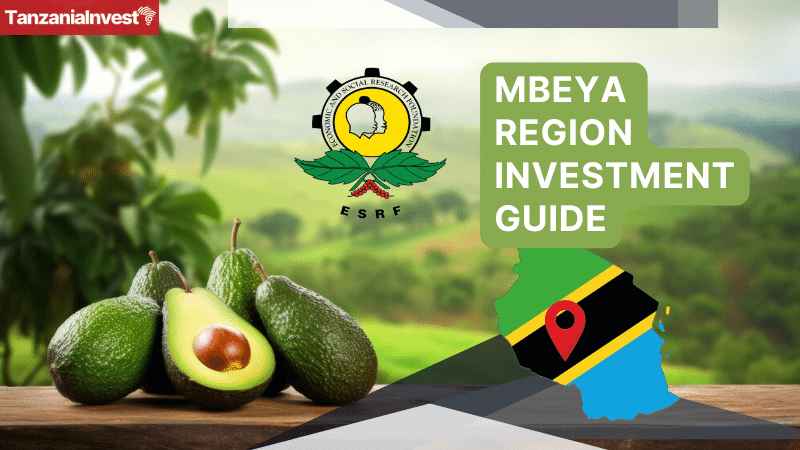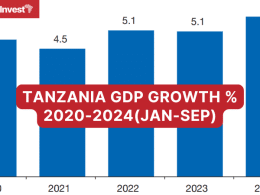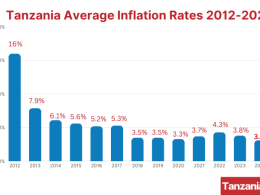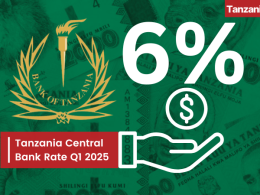The Economic and Social Research Foundation (ESRF) has prepared a detailed investment guide for Tanzania’s Mbeya region, highlighting the area’s strategic importance and diverse opportunities for local and foreign investors.
As part of a partnership initiative to reach a wider audience of potential investors, TanzaniaInvest is republishing this guide along with other regional investment guides developed by ESRF.
The Mbeya Region in Tanzania’s Southern Highlands presents diverse investment opportunities, leveraging its strategic location as a trade hub near Malawi and Zambia, fertile agricultural land, and supportive government policies.
Key sectors primed for investment in Mbeya include agriculture and agro-processing, livestock, manufacturing, mining, and tourism.
Furthermore, the Region easily connects to regional and international markets thanks to its robust infrastructure, which comprises an international airport, the Tanzania-Zambia Railway (TAZARA), and extensive road networks.
Reasons for Investing in the Mbeya Region
- Strategic Position and Growing Economy
Mbeya is an economic hub with access to regional markets in East and Southern Africa, supported by a stable political climate and Tanzania’s favorable trade policies. The region’s proximity to Dodoma, Dar es Salaam, and international borders makes it ideal for investments in trade, logistics, and processing industries. - Investment Climate
Tanzania’s supportive policies, streamlined investment processes, and business-friendly reforms, such as reduced nuisance taxes, make Mbeya a prime destination for investors. Investors benefit from protections under the Tanzania Investment Act and incentives within the Special Economic Zones (SEZs) and Export Processing Zones (EPZs). - Infrastructure and Services
Mbeya offers transport infrastructure which includes the Tanzania-Zambia Railway Authority (TAZARA), Songwe International Airport, extensive road networks, and reliable telecommunications services. Key financial services are provided by the Bank of Tanzania and other major commercial banks, while energy needs are met through the national grid.
Socio-Economic Profile of Mbeya Region
- Geographic and Demographic Overview
Covering over 35,000 square kilometers, Mbeya has diverse agro-ecological zones suited for agriculture and livestock. The region’s population of approximately 2.3 million provides a stable labor force for agriculture, manufacturing, and service sectors. - Key Economic Activities
Agriculture dominates the region’s economy, employing 80% of the population and contributing 40% to the regional GDP. Major crops include maize, potatoes, rice, and tea, with significant growth in horticulture and floriculture. Additionally, mining, livestock, and tourism represent expanding sectors with substantial investment potential. - Agro-Ecological Zones
Mbeya’s highlands, midlands, and lowlands provide optimal conditions for various crops and livestock farming. The highlands produce tea, coffee, and bananas, while the lowlands are suitable for rice, cocoa, and cashews.
Priority Investment Opportunities in the Mbeya Region
- Processing and Manufacturing: Investment in packaging, meat processing, dairy, and horticultural processing offers high returns.
- Animal Feed Production and Pharmaceuticals: These are essential for local economic development and are in strong demand.
- Industrial Parks and Infrastructure: Construction of industrial parks and dry ports supports logistics and trade.
- Agricultural Processing: Processing of bananas, avocados, cocoa, and sunflower enhances value addition.
- Forestry: Mbeya Region has an area of forestry that is covered mostly with Miombo woodland. There are also some plantations of pine trees in various areas such as Kawetere in the Mbeya District.
- Mineral Extraction and Tourism: Opportunities include mineral extraction(gold, coal, sand, stones, morum, and industrial minerals such as marble, limestone, iron ore, and phosphates), sports stadiums, hotels, and hospitality services.
- Social Services: Investment is encouraged in healthcare facilities, educational institutions, and cold storage.
Facilitation, Processes, Requirements, and Incentives
- Supportive Policies and Incentives
The Tanzanian government provides investors with tax exemptions, land acquisition support, and special incentives for strategic projects, especially in SEZs and EPZs. - Investment Processes
The Tanzania Investment Centre (TIC) streamlines registration and facilitation for investors. For Mbeya, land acquisition, labor availability, and access to financial services are managed through local councils and major institutions. - Access to Resources
Land is readily available through regional authorities, and financial services are accessible through the Bank of Tanzania and commercial banks. Investors also benefit from a skilled and trainable labor force.
Key Contacts in the Mbeya Region
Mbeya Region Website: https://mbeya.go.tz/
Regional Commissioner (RC)
Address: 754, Uzunguni Road, District Councils LGA, MBEYA
Telephone/Mobile: +255 25 253034, +255 784 838650
E-mail: ras@mbeya.go.tz
District Executive Director
Mbeya District Council
Address: 599 Inyala, MBEYA
Telephone/Mobile: +255 25-2502260
E-mail: ded@mbeyadc.go.tz, info@mbeyadc.go.tz
Rungwe District Council
Address: 148 Tukuyu, MBEYA
Telephone/Mobile: +255 25 255 2586
E-mail: ded@rungwedc.go.tz
Busokelo District Council
Address: 2 Lwangwa, Tukuyu, MBEYA
Telephone/Mobile: +255 737 205 318
E-mail: ded@busokelodc.go.tz
Kyela District Council
Address: 320 Kyela, Bomani Street, MBEYA
Telephone/Mobile: +255 252540035/7
E-mail: ded@kyeladc.go.tz
Mbarali District Council
Address: 237 Rujewa, MBEYA
Telephone/Mobile: +255 25 295 7440, +255 25 295 7447
E-mail: ded.mbarali@mbeya.go.tz
Chunya District Council
Address: 73 Itigi Road, Chunya, MBEYA
Telephone/Mobile: +255 25 2520121
E-mail: ded@chunyadc.go.tz
Mbeya City Council
Council Chairperson
Address: 149 Mbalizi Road, MBEYA
Telephone/Mobile: +255 25 2502619
E-mail: cd@mbeyacc.go.tz
City Director
Address: 149 Mbalizi Road, MBEYA
Telephone/Mobile: +255 25 2502563
E-mail: cd@mbeyacc.go.tz
Disclaimer
This guidebook provides essential information for potential investors in the Mbeya Region. It is not an exhaustive document, and potential investors are encouraged to conduct feasibility studies and environmental assessments. Information was gathered from regional and local government officials and the private sector.
Accessing the Full Guide
Download the Mbeya Region Investment Guide PDF.










